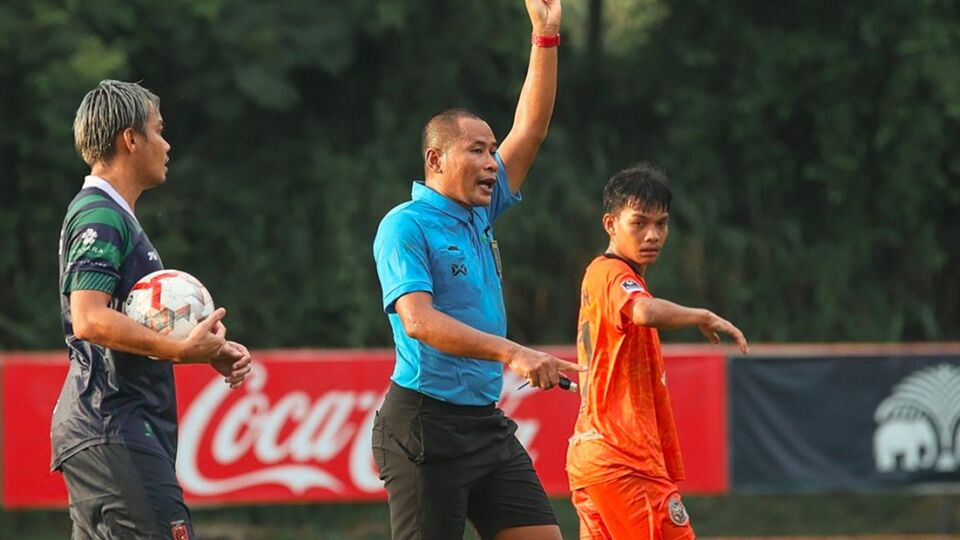Thailand’s Football Association has issued a lifetime ban on referee Somsak Poosomnuek, ruling that he had used racist language when talking to a football player.
Somsak was found to have used a racist slur on Thai-Ghanaian player Abdulkordiri Hamid during the Thai League 3 football match between Pattaya United and Prachinburi City on Oct. 29, following an investigation made by the association and police.
The association concluded that the slur, which literally translates to “black one” in English and is considered to be the N-word equivalent in Thai, amounted to racial discrimination, and that it had damaged the image of the football association in Thailand.
Somsak defended himself prior to receiving the ban, claiming he wasn’t using racist language and that he was merely referring to dark skin, which he, like many Thais, also has. He also said his friends have called him by the same slur throughout his life.
Nevertheless, players have spoken out against Somsak and said that this was not the first time he displayed discriminatory behavior. The football association suspended Somsak immediately after the Oct. 29 match, and, on Saturday, slapped him with a lifetime ban.
Hamid, a striker for Prachinburi City who is fluent in Thai, said that Somsak had called him using the slur, before saying “If you can handle it, get up and continue playing. No need to lie down, or do you want a doctor?”
The striker wrote on Facebook, “I speak from the heart, you can call me whatever, I’ve never been angry about it. But as a referee, you should use better words. Calling me ‘dark’ is not appropriate.”
Prachinburi City also came to his defense saying that they oppose racism and insults based on race, religion and ethnicity.
“Mocking or belittling based on nationality, religion, or ethnicity should not happen in the Thai football community,” the football club wrote in a Facebook post last month. “This is not the first time that Abdul, a Thai national by birth, has faced skin color discrimination. However, this time, it seems more severe than what has come from the mouths of ‘referees’ in the past. Everyone is entitled to their feelings, but in a special role, individuals are required to control their emotions and have a better moral and ethical standing than the average person.”




